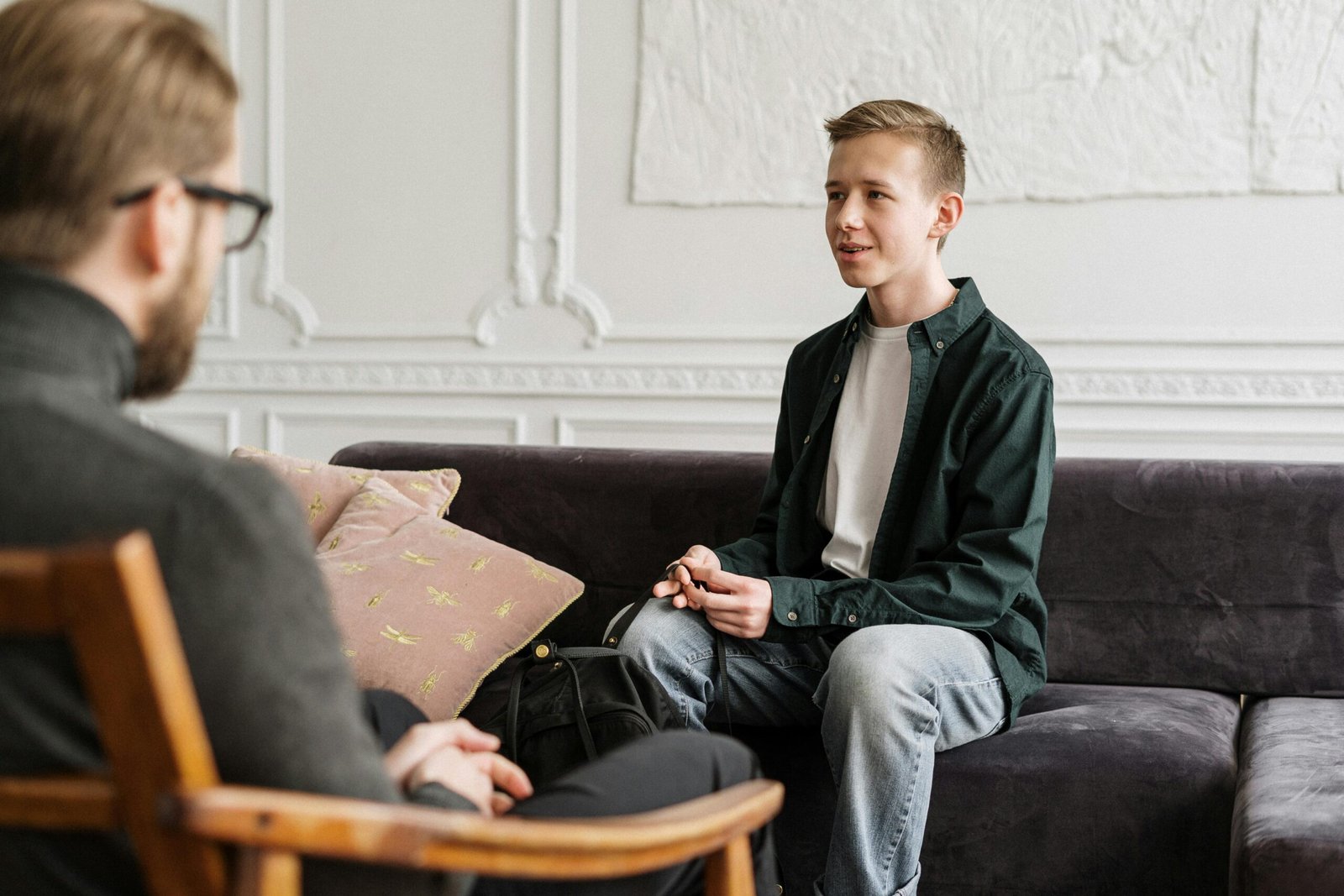

🧠 Understanding Common Psychological Issues Across Ages and Genders
— A Complete Guide to Mental Health from Childhood to Old Age
🟢 Introduction: Mental Health – A Lifelong Journey
Mental health is not static—it’s an evolving aspect of our lives. From childhood to old age, every stage of life brings unique emotional and psychological experiences. This blog explores how mental health challenges present themselves across age groups and genders, along with practical support options including CBT, DBT, Play Therapy, Yoga, and more to promote healing and self-awareness.
👶 1. Psychological Challenges in Children (0–12 Years)
Formative Minds, Fragile Emotions
Children develop rapidly—emotionally, socially, and cognitively. Early interventions can make a lasting difference.
🔍 Common Issues in Children:
| 🧩 Issue | 💬 Description |
|---|---|
| ADHD | Short attention span, restlessness, impulsive behavior. |
| Autism Spectrum Disorder (ASD) | Challenges with communication, eye contact, social skills. |
| Anxiety Disorders | Intense worry, separation anxiety, irrational fears. |
| Learning Disabilities | Difficulty reading, writing, or solving math problems (e.g., dyslexia). |
| Behavioral Problems | Defiance, aggression, emotional outbursts. |
❓Why Do These Happen?
-
Biological and genetic influences
-
Parenting style and attachment issues
-
School pressures and peer comparison
-
Exposure to trauma or neglect
💡 Helpful Support Tips for Children:
-
🎨 Play Therapy: Allows kids to express themselves using toys/art.
-
🧠 Cognitive Behavioral Therapy (CBT): Helps challenge and reshape thought patterns.
-
💬 Storytelling/Narrative Therapy: Great for expressing feelings through stories.
-
🧘♀️ Yoga & Mindfulness: Encourages emotional regulation and focus.
-
👩🏫 Special Education Plans (IEPs): Support children with learning differences.
🧑🎓 2. Adolescents (13–18 Years): Navigating Identity and Pressure
Stormy Skies, Searching Souls
Teenagers face inner and outer pressures—hormonal changes, academic expectations, and identity crises. It’s a sensitive phase where unaddressed issues may deepen.
🔍 Common Issues in Teens:
| 🔥 Issue | 💬 Description |
|---|---|
| Depression & Anxiety | Sadness, withdrawal, excessive worry, social avoidance. |
| Body Image Issues | May result in eating disorders like anorexia or bulimia. |
| Substance Use | Used as a coping mechanism or for peer acceptance. |
| Identity Confusion | Related to gender, sexuality, or future aspirations. |
| Self-harm/Suicidal Thoughts | Often signals deep emotional distress. |
❓Why Do These Happen?
-
Hormonal and neurological changes
-
Academic and societal expectations
-
Social media pressure and cyberbullying
-
Poor coping strategies or emotional awareness
💡 Helpful Support Tips for Teens:
-
🧠 Dialectical Behavior Therapy (DBT): Teaches emotional regulation and coping skills.
-
🌀 NLP (Neuro-Linguistic Programming): Helps reshape thoughts and habits.
-
🧘 Mindfulness Meditation: Encourages awareness of present moment.
-
👥 Peer Support Groups: Reduces feelings of isolation.
-
🎭 Art, Dance & Music Therapy: Non-verbal outlets for complex emotions.
-
📵 Digital Detox Tips: Reduce screen time and improve mental clarity.
👨👩👧👦 3. Adults (19–59 Years): Balancing Responsibilities
Work, Family, Self—A Constant Tug of War
This phase includes building careers, relationships, raising families, and maintaining health—often at the cost of emotional well-being.
🔍 Common Issues in Adults:
| ⚖️ Issue | 💬 Description |
|---|---|
| Anxiety & Depression | Often triggered by job stress, relationships, or financial burdens. |
| Burnout | Chronic stress leading to exhaustion, especially in high-pressure jobs. |
| Addictions | Includes alcohol, smoking, gambling, or screen addiction. |
| Obsessive-Compulsive Behavior | Compulsive routines or thoughts tied to control. |
| Postpartum Depression | Emotional struggles after childbirth. |
❓Why Do These Happen?
-
Unrealistic expectations and societal pressures
-
Lack of emotional outlets and support
-
Chronic stress from multitasking roles
-
Unresolved past trauma
💡 Helpful Support Tips for Adults:
-
🧠 CBT (Cognitive Behavioral Therapy): Recognize negative thoughts, build healthy beliefs.
-
🧘♂️ Mindfulness & Meditation: Grounding techniques for present-focused awareness.
-
🌀 Hypnotherapy: Access deep-rooted subconscious beliefs.
-
📓 Journaling & Self-reflection: Clarify thoughts and emotions.
-
🧑⚕️ Couples Therapy: Navigate relationship strains.
-
📚 Workshops/Webinars on Stress Management
👵 4. Older Adults (60+ Years): Coping with Change and Loss
Wisdom Meets Loneliness
The golden years may come with physical slowing down, emotional vulnerability, and a struggle to redefine purpose.
🔍 Common Issues in Seniors:
| 🕰️ Issue | 💬 Description |
|---|---|
| Dementia/Alzheimer’s | Memory loss, confusion, and cognitive decline. |
| Depression | Triggered by retirement, bereavement, or feeling useless. |
| Anxiety | Related to health or financial insecurity. |
| Sleep Issues & Loneliness | Often underdiagnosed but common. |
❓Why Do These Happen?
-
Physical decline and medical conditions
-
Reduced social circles and isolation
-
Losing spouse/friends
-
Lack of engaging activities
💡 Helpful Support Tips for Seniors:
-
🧩 Cognitive Therapy & Memory Games: Help delay cognitive decline.
-
☀️ Outdoor Walks/Yoga for Seniors: Keeps body and mind active.
-
🎶 Music Therapy: Evokes positive emotions and memories.
-
📖 Reminiscence Therapy: Revisit positive past experiences.
-
📞 Community Engagement/Volunteer Work: Provides purpose and socialization.
-
🧘♀️ Gentle Meditation & Breathing Exercises
🚻 5. Gender-Specific Psychological Trends
Understanding Different Journeys
👨 Men:
-
🔥 Higher rates of suicide and substance abuse
-
😡 Suppressed emotions often lead to anger or isolation
-
😶 Less likely to seek help due to social stigma
👩 Women:
-
😔 More prone to anxiety, depression, and mood disorders
-
🤰 Prone to postpartum depression and hormonal mood swings
-
💬 More likely to seek therapy or talk about mental health
💡 Support Approaches Based on Gender:
-
Encourage emotion-friendly environments for men (coaching, group talks)
-
Support maternal health and hormonal counseling for women
-
Promote mental health literacy for all genders
-
Offer gender-sensitive therapy models
🌈 Conclusion: Awareness is the First Step Toward Healing
Understanding mental health through the lens of age and gender helps break stigmas and build empathy. No one is immune to psychological struggles—but everyone deserves support. Whether you’re a parent, student, professional, caregiver, or elder, being mentally healthy means staying emotionally aware, seeking help without shame, and building resilience through education, therapy, and wellness practices.
🌟 “Mental health is not a destination but a process. It’s about how you drive, not where you’re going.” – Noam Shpancer
You May Also Like
-
Sep 20, 2022
-
Aug 20, 2022
-
Jul 20, 2022
Sign up to receive our latest updates
Get in touch
Want to connect, chat with us?
Address



